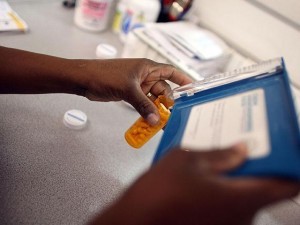

'“The time has come to close the book on infectious disease,” US Surgeon General William Stewart told Congress in 1967. “We have basically wiped out infection in the United States”.
The disturbing news this week that the world is on the cusp of a “post-antibiotic era” makes this breezy claim now seem almost comically naive.
You can’t say we weren’t warned. Antimicrobial resistance (AMR) already accounts for roughly 700,000 deaths per year globally and has been forecast to rise to 10 million deaths by 2050. That’s more than cancer, diabetes or cholera. And that prediction was made when we still had effective drugs.
The costs of dealing with such a crisis would be astronomical; estimates suggest it could cause a reduction of 2% to 3.5% in global Gross Domestic Product (GDP) and cost the world up to $100 trillion USD.
The scariest thing is that we’ve known about this possible outcome for decades and done nothing to prevent it. It’s because our established economic models, founded on the misplaced belief that infinite ‘growth’ is both possible and desirable, are funnelling us towards oblivion.'